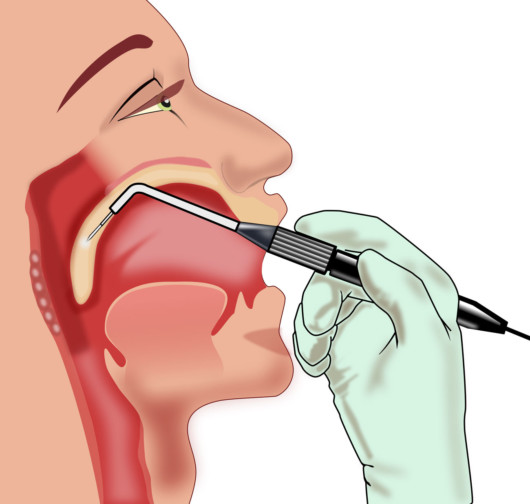When an individual has sleep apnea, they will periodically stop breathing while they are asleep, and that can impact almost every facet of their life. Studies continue to show us that failing to get restorative sleep will harm your long-term mental health, physical health, and cognitive abilities.
If you have recently been diagnosed with sleep apnea, then you should take a closer look at palatoplasty for sleep apnea & snoring. That procedure utilizes cutting-edge laser technology to gently reduce the size of the uvula for a larger airway and improved breathing.
Dangers of Untreated Sleep Apnea
Untreated sleep apnea is more dangerous than most people realize, and that condition often leads to chronic health complications when left untreated. Sleep apnea can be caused by many different issues, and that includes an oversized uvula that is blocking the airway.

While some lifestyle changes and sleeping devices could help mitigate the side effects of sleep apnea, you will most likely need professional help if you want to enjoy long-term relief. Palatoplasty is going to be an ideal option if your sleep apnea is primarily being caused by an oversized or drooping uvula that is blocking the transition between your mouth and throat.
The Technology Behind Palatoplasty
Palatoplasty is one of the most advanced sleep apnea treatments on the market, and it utilizes medical-grade lasers that are now being used in a wide variety of procedures. The laser itself is going to be directed at the uvula to remove a very small amount of soft tissue. Once the tissue has been removed, the uvula will tighten as it continues to heal.
Many surgeons and patients now prefer this procedure because the laser can make very precise alterations without damaging the nearby soft tissue. The heat from the laser is also going to trigger the body’s natural healing response so that the patient has a relatively quick and comfortable recovery.
What Is the Procedure Like?
This in-office procedure usually takes around 30 minutes to complete, and you can head home immediately after the operation. Your surgeon is first going to administer a local anesthetic that completely numbs the area. Once the uvula is numb, a small device will be used to hold your mouth open so that the laser can be placed in the correct position. The laser itself is a small device that heats and sculpts small pieces of soft tissue very quickly. When the surgeon is satisfied with the results, you should be able to head home right away.

Recovering from this procedure is a relatively simple process, and you will most likely have to do nothing more than make a few small alterations to your diet. Before your operation, your surgeon is going to give you comprehensive post-op instructions so that you know exactly what to do. Within a few days of the operation, the soft tissue should quickly heal on its own, but the scabbing could last for a week or two. For the average patient, the benefits of this procedure are going to be noticed within two or three weeks.
Other Treatment Options
Palatoplasty is just one of the many treatment options available to those who have sleep apnea, and it only works in very specific situations. That is why it is so important to meet with a skilled surgeon who has extensive experience with sleep apnea.
Depending on what is causing your sleep apnea, your surgeon might suggest a CPAP machine, implants, lifestyle changes, and other options that will improve your nighttime breathing and sleep schedule.



